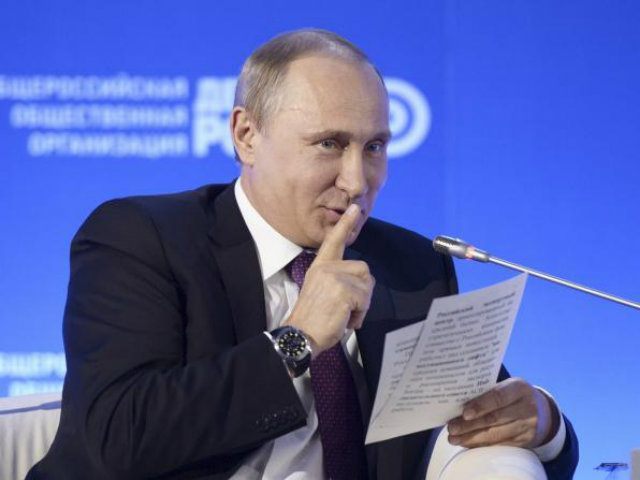Russia has reportedly reached an agreement with Iraq, Syria, and Iran to share intelligence about the Islamic State (ISIS/ISIL)–without notifying the Obama administration.
Nevertheless, President Obama, during his address to the United Nations Monday, indicated that he is willing to “compromise” with Iran and Russia on finding a solution to the Syrian conflict.
“Lasting stability can only take hold when the people of Syria forge an agreement to live together peacefully,” said Obama. “The United States is prepared to work with any nation, including Russia and Iran, to resolve the conflict.”
President Obama did concede that the Bashar al-Assad regime in Syria is illegitimate.
“Realism dictates that compromise will be required to end the fighting and ultimately stamp out ISIL,” Obama noted. “But realism also requires a managed transition away from Assad into a new leader and an inclusive government that recognizes that there must be an end to this chaos so that the Syrian people can begin to rebuild.”
The intelligence-sharing agreement is expected to expand Russia’s political and military influence in the Syria conflict, reported The New York Times (NYT) on Sunday.
“Like Russia’s earlier move to bolster the government of President Bashar al-Assad by deploying warplanes and tanks to a base near Latakia, Syria, the intelligence-sharing arrangement was sealed without notice to the United States,” notes NYT. “American officials knew that a group of Russian military officers were in Baghdad, but they were clearly surprised when the Iraqi military’s Joint Operations Command announced the intelligence sharing accord on Sunday.”
It adds:
It was another sign that President Vladimir V. Putin of Russia was moving ahead with a sharply different tack from that of the Obama administration in battling the Islamic State, also known as ISIS or ISIL, by assembling a rival coalition that includes Iran and the Syrian government.
The United States considers Iran the most active state-sponsor of terrorism.
The intelligence-sharing agreement places Moscow in a position to provide military support to Assad, its longtime ally in the Middle East, despite U.S. opposition.
It “could also enable the Kremlin to influence the choice of a successor if Mr. Assad were to eventually leave power,” reports NYT.
“Russia’s moves are raising difficult questions for the Obama administration, which remains deeply conflicted about American military involvement in the Syria conflict,” NYT states, adding:
Ensuring that the Russian military and the United States-led coalition, which is carrying out airstrikes against the Islamic State, “deconflict” and avoid running into each other is only part of the problem: The Obama administration and the Kremlin do not appear to agree even on the main reason for the conflict.
U.S. officials, who consider the Assad regime to be the primary source of instability in Syria, argue that the Syrian dictator’s violent crackdown allowed for the entrance of jihadist groups into the war-torn country and that the situation cannot be resolved until Assad is removed from power.
Meanwhile, The New York Times reports, “Russian officials see the Syrian government as a bulwark against further gains by groups like Islamic State and Nusra Front and sometimes suggest that the defeat of the Islamic State should come before a negotiated solution for the Syrian conflict.”
“Even as the United States has banked on a diplomatic strategy of trying to enlist Russia’s cooperation in Syria, the Kremlin has continued to jolt the White House with its unilateral military and political moves,” it adds.
The latest moves by Russia have raised concerns about the U.S. relationship with its ally Iraq, notes NYT.
“With about 3,500 American advisers, trainers and other military personnel in his country, Prime Minister Haider al-Abadi of Iraq has cast himself as a vital member of the United States-led coalition to combat the Islamic State,” the outlet reports.
“However, the Shiite-dominated Iraqi government, which has long been anxious that ousting Mr. Assad might strengthen the Islamic State, has also quietly enabled the Russian military buildup in Syria,” it adds. “While Bulgaria closed its airspace to Russian transport planes headed to Syria at the request of the United States, Iraq has allowed the Russian flights in its airspace.”
U.S. officials have downplayed the significance of the intelligence-sharing agreement that Russia reached with Iran, Iraq, and Syria.
Nevertheless, Col. Steven H. Warren, a Baghdad-based spokesman for the U.S.-led coalition, said, “We do not support the presence of Syrian government officials who are part of a regime that has brutalized its own citizens.”

COMMENTS
Please let us know if you're having issues with commenting.